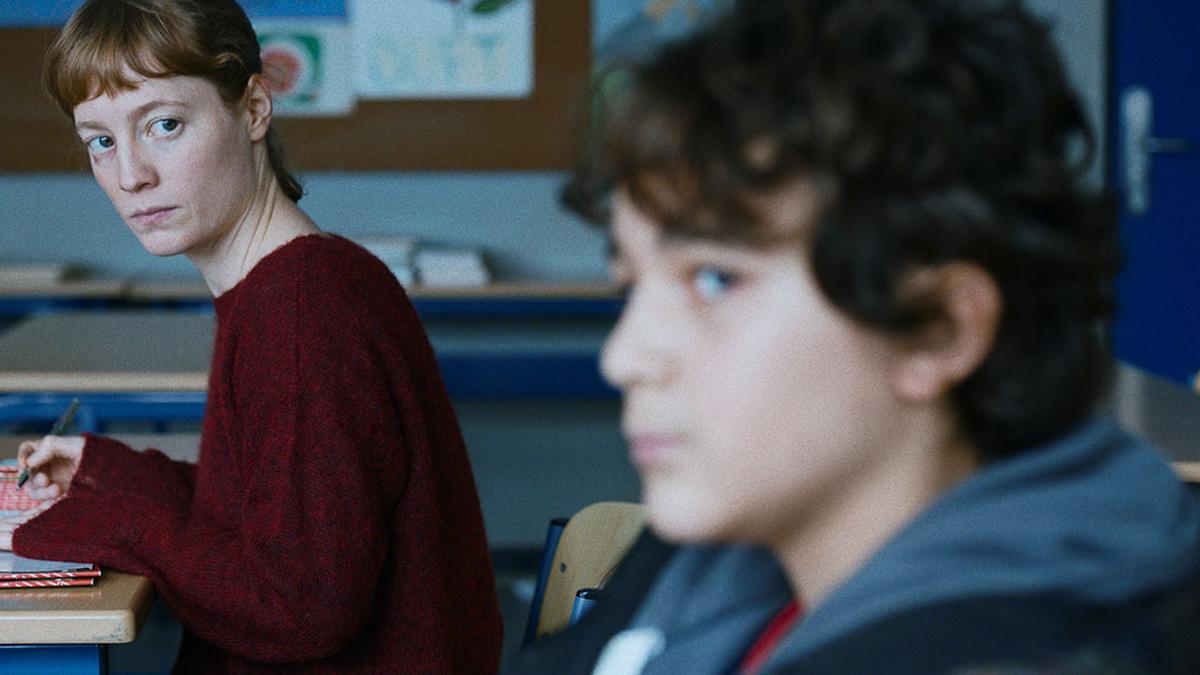
‘The Teachers’ Lounge’ movie review: A riveting, nerve-wracking drama on the grey lands of morality
The Hindu
In ‘The Teachers’ Lounge,’ an Oscar contender for Best International Feature Film, a school becomes a microcosm of society to raise some difficult questions about morality
From the very first frame of The Teachers’ Lounge, there’s an inescapable tension in the air that only gets tenser as the story progresses. Filmmaker İlker Çatak uses everything in the mise en scène to tell an arresting tale on morality, traversing over some complex social questions and the fragility of the institutional structures that are in place to stand for what’s considered “right”.
In the very first scene, when we meet Carla Nowak (Leonie Benesch), the new teacher at a German secondary school, we see her torn between her ideals, the hierarchy in place, and the natural need to fit in. After a series of thefts on the premises, the teachers get together to investigate, and Carla witnesses her colleague, Thomas Liebenwerda (Michael Klammer), use a rather questionable way to do it. As she fears, things go haywire as it leads to a Middle Eastern student, Ali, being unfairly investigated, and the management is accused of racial profiling.
Carla is the kind of teacher who — at times frustratingly for the viewers — puts her students’ well-being above hers. Now confident in being on the right side of things, she takes matters into her own hands to find the thief; she uses her wallet as bait and attempts to catch the culprit using her laptop camera. Friederike Kuhn (Eva Löbau), an administrative colleague of Carla, and the mother of Oskar (Leonard Stettnisch), one of the brightest in the classroom, becomes Carla’s suspect, but the evidence is not so conclusive; Carla’s suspicion is based on a distinct blouse that Kuhn wears that day. The risk of legal trouble puts Carla’s job on the fence and the management’s integrity in jeopardy, and to make matters worse, Oskar is not happy with Carla for what happened to his mother.
A compelling drama that doubles up as a thriller unfolds over the next hour, and the school also becomes a place for a fascinating social experiment — told in a cinematic form we have not seen such stories usually. Carla is pulled into one too many distressing situations, one more nerve-wracking than the other, and she eventually finds herself being pitted against everyone in the school. The narrative, told linearly, is woven so intricate. Many scenes — be it the PTA meeting or the one in which the sharp-tongued student journalists place a harsh mirror in front of Carla — have effectively dramatic staging, but what you cannot shake away from is how each of them is consistent with the film’s purpose to comment on the larger picture in our reality.
There are several admirable writing choices that you ponder over; take for instance how we are only hinted at Carla’s Polish background bearing something heavily on her psyche, making us draw our reasoning on why she is how she is in this new institution. It’s quite something to see a teacher who wishes to build a happy and safe classroom for her students — one that nurtures empathy, discipline, unity and individual thinking — is pushed to the brink of paranoia and is forced to hold her own lessons close when the chips fall.
While Leonie Benesch’s heartfelt act as a woman torn to bits is what captivates you the most, Çatak’s use of sounds — of children chattering or playing sports — and Marvin Miller’s background scores add depth to the scenes.
The cherry on top is how The Teachers’ Lounge doesn’t wish to give you all the answers, making you draw your own conclusions from having been in the shoes of Carla.











